New regulations in Europe mean that many cities need to draft new plans for sustainability. We helped Cologne use this opportunity to reimagine its mobility strategy.
Scroll down for French translation
Mobycon developed the first stage of a Sustainable Urban Mobility Plan (SUMP) for the city of Cologne. This plan, “Besser durch Köln”, will bring the city up to date with EU sustainability guidelines. The consortium will develop the content of the SUMP within the first phase of the process, within which the vision, goals, targets, indicators, and strategy will be delivered in 2024.
The foundation of the project is a comprehensive analysis of the political framework, existing concepts, and current traffic data. Additionally, the traffic situation in Cologne has been examined in detail for pedestrian, bicycle, and motor vehicle traffic. A key aspect of the process is the active involvement of Cologne’s citizens as well as other relevant stakeholders, such as local businesses and political institutions. This is achieved through a variety of participatory formats that allow their perspectives and ideas to feed into the planning process. All the participation processes were organized by another consortium.
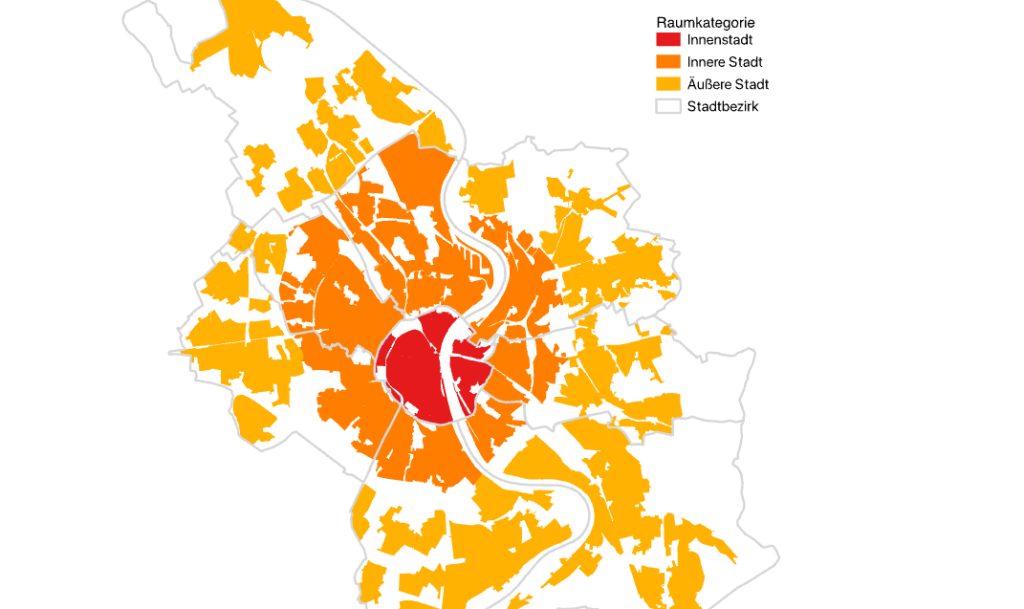
Our Approach
The city of Cologne had developed a vision of a sustainable mobility future. Mobycon took the goals and weaknesses outlined by our partners and, building on our prior research in the region, developed a Sustainable Urban Mobility Plan for the city to get there. Mobycon’s task was then to develop targets to achieve the vision. We presented different possibilities for Cologne’s sustainable mobility future in 2035 using scenarios and trends. After evaluating these scenarios, a target scenario was developed as a framework for future mobility planning.
Some important key targets were:
• Zero emissions
• Accessibility
• Safety
The city will take these recommendations to its partners, who will work to make them a reality in the coming years.
Read more about this project on Cologne’s website, or find more images and information in the presentation of the project (in German).
Cities across Europe are looking to develop Sustainable Urban Mobility Plans of ther own, is your city one of them? Reach out to Dagmar Köhler from our DACH team to hear more about this project, or contact us for general inquiries.
A growing and dynamic city like Cologne needs sustainable mobility. Shaping this for the future in a climate-friendly, socially just and economically viable way is the central task of the sustainable mobility plan. With the completion of the first stage, we have worked together with the entire urban community to develop an overarching strategy with which we want to make the vision of the sustainable mobility plan a reality.
Besser durch köln
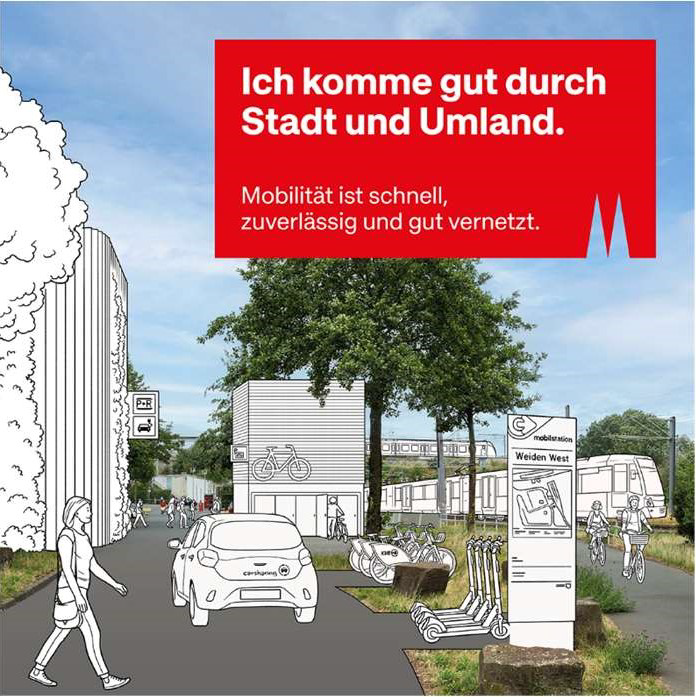
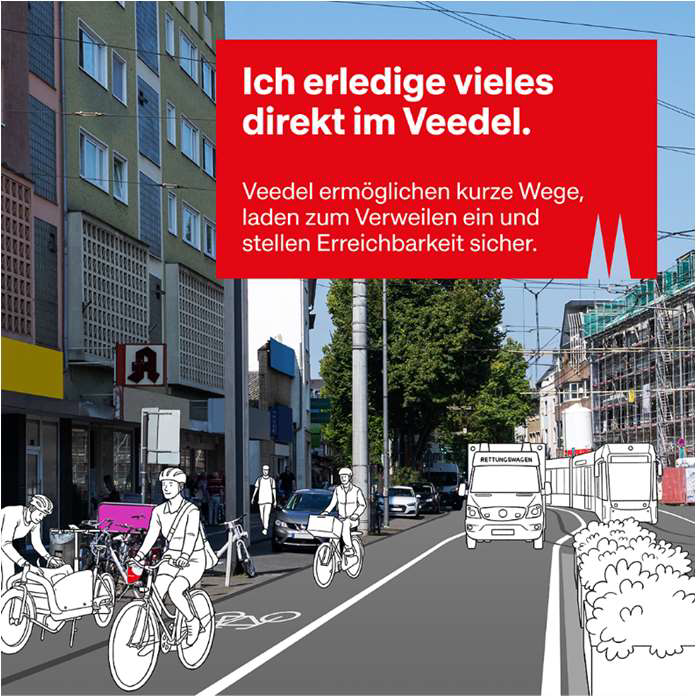
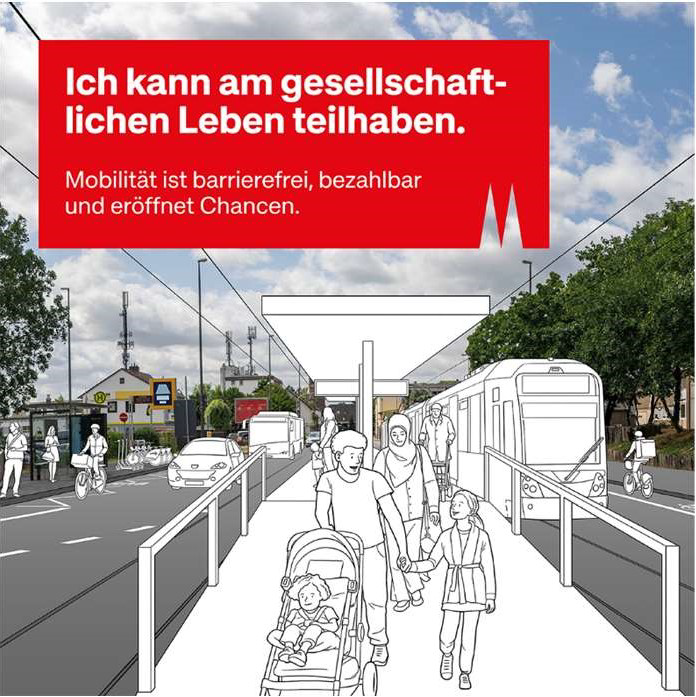
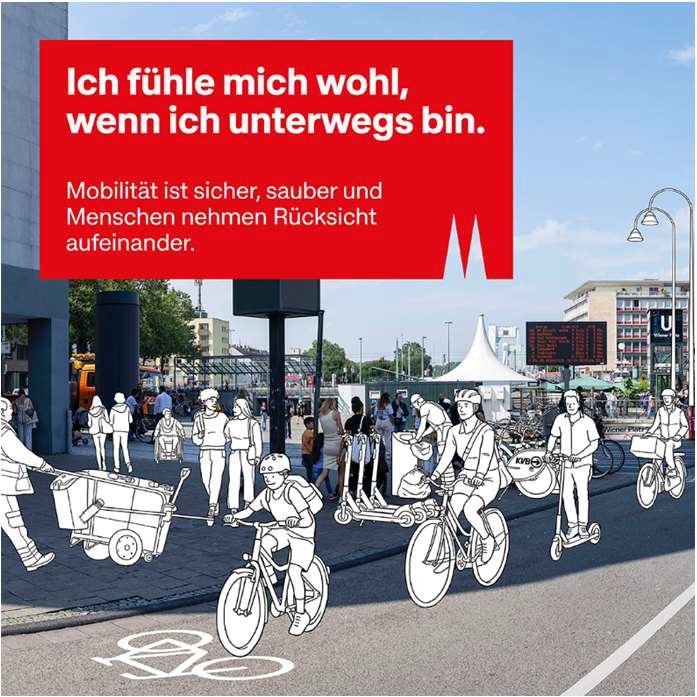
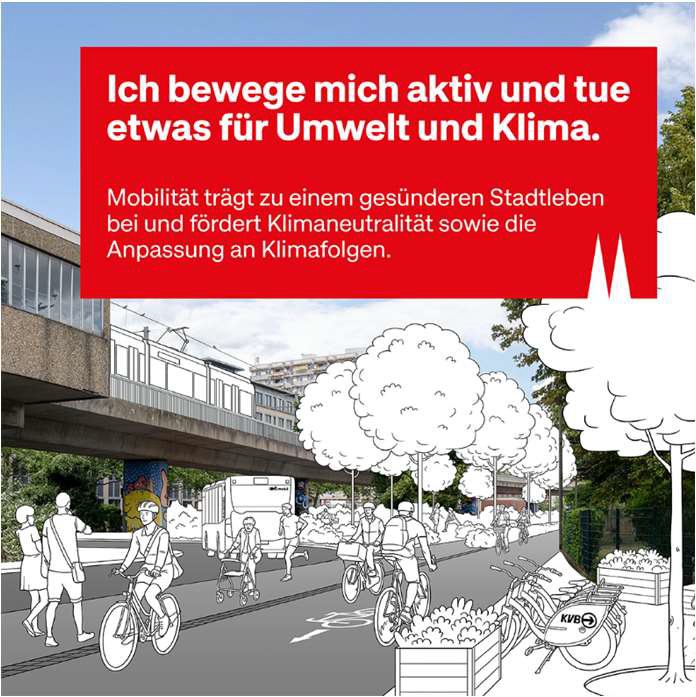
Plan de mobilité urbaine durable (SUMP) de la Ville de Cologne, Allemagne
En octobre 2022, le consortium composé de MiB (Mobility Institute Berlin), OE (Orange Edge) et Mobycon a élaboré la première étape d’un plan de mobilité urbaine durable (SUMP) pour la ville de Cologne. Le plan suivra toutes les lignes directrices de l’UE pour le projet. Le consortium développera le contenu du SUMP au cours de la première phase du processus, au cours de laquelle la vision, les objectifs, les cibles, les indicateurs et la stratégie seront livrés en 2024.
Le fondement du projet repose sur une analyse approfondie du cadre politique, des concepts existants et des données de circulation actuelles. La situation du trafic à Cologne a également été examinée en détail pour la marche, le vélo et la circulation automobile. Un aspect clé du processus est l’implication active des citoyen·ne·s de Cologne ainsi que d’autres parties prenantes pertinentes, telles que les entreprises locales et les institutions politiques. Cette implication est assurée à travers une variété de formats participatifs permettant à leurs perspectives et idées d’alimenter le processus de planification. L’ensemble des démarches de participation a été organisé par un second consortium, chargé également de superviser le processus et la communication, en collaboration avec l’administration municipale et d’autres acteurs concernés.

